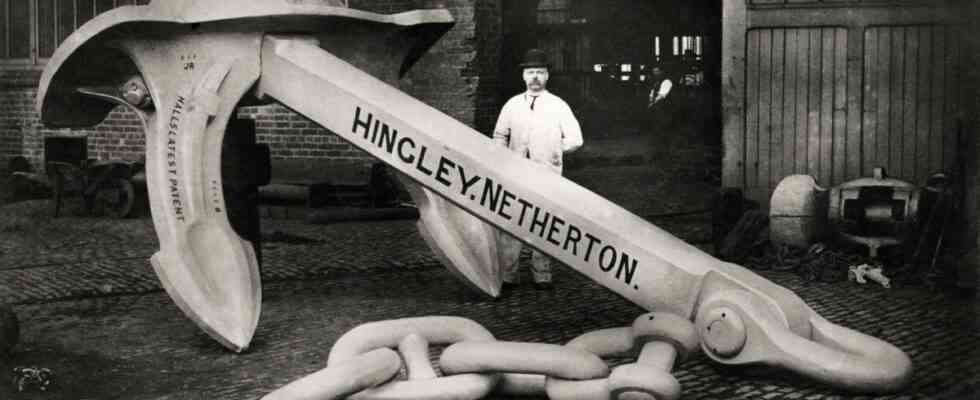Denis Pfabe, born in 1986, has written his second novel so densely and carefully, his “McGuffin”, a Japanese pistol from the Second World War, made in Kirijo Nambu’s gunsmith’s workshop, works so well as a baiting object shrouded in mystery that it doesn’t come naturally not only group the wishes and deeds of the characters in the novel around it, but also the readership quickly begins to revolve around this ominous weapon with their associations and mental games.
The hero, better anti-hero, of this story is called Jonathan Simonelli, a dummy builder for film sets, once successful, but has now slipped into drunkenness, because the triumphant advance of digital possibilities in film production, to perfectly simulate everything possible and also the impossible in the cinema, has him unstoppable side pushed. Surprisingly, however, he gets a major order, the anchor of titanic to be recreated for a documentary film shoot in Dudley, site of a large steel forge. His friend Henri collects wartime antiques, which in turn are bought by more or less dubious gun enthusiasts. That’s how Simonelli got hold of the Nambu, that is, he stole it. He soon receives inquiries as to whether he would sell them. Simonelli travels to England to recreate the anchor out of plywood and, more importantly, rakes in a pretty penny with the Nambu. But the snobbish big gangster Ali Toy is not the only one who wants the pistol, there is also great interest in Japan because this weapon is said to have once belonged to the war criminal general Yamashita.
The matter grows beyond Simonelli’s head, but he grows with them to the last, falls in love with Edi on the film set, kills the yakuza Hideki with the Nambu and still has to experience that the alleged friend Henri plays him wrong. The swivel around the pistol with the sweetheart grip – a naked beauty under Plexiglas is worked into the butt, allegedly General Yamashita’s former lover – rotates imperceptibly until Pfabe accelerates it dramatically. He skilfully splits the plot into flashbacks and parallel montages and manages to characterize his staff credibly despite some clichés: the good Japanese gun expert Shige, the fat professional killer Hideki, the playful and nefarious Ali Toy, the cool Edi and finally the petty crooks Henri and his wayward sons.
Denis Pfabe: Simonelli. Novel. Rowohlt Berlin, Berlin 2021. 286 pages, 22 euros.
Denis Pfabe doesn’t allow himself to be seduced into pleasing type sloppiness, but tells the story in a concise and controlled manner. In this way, the portrait of a man who, loosely adapted from Herbert Achternbusch, has no real chance, but at least wants to take advantage of it, emerges from familiar thriller material, a born loser who wants to win one day and puts everything on one card, the Nambu.
It’s remarkable how a Pfabe keeps a good time chasing his McGuffin, remarkable how his characters radiate life in their motives and impulses. Pfabe is able, cum grano salis, to breathe something like spirit into them. This also means that he neither overtaxes them psychologically nor overstrains them with the complexity they are looking for. This turns a relatively limited plot into a well orchestrated story.
By the way, the mystery of why all sorts of good and bad spirits want this Japanese weapon is kept beyond the book. Even Simonelli doesn’t reveal it when he looks closely at the sweetheart photo in the light: “Take a closer look at what he had just noticed. It was so simple, so obvious. Simonelli exhaled. He had discovered the crucial detail that he Clarified what the damn gun was all about. A quick smile crossed his tired face.”

